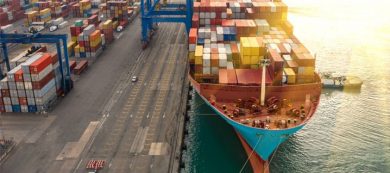DDP: DELIVERY DUTY PAID
International shipping and importing is complex, and shipping delays and damage can add up to massive losses for buyers and sellers. Planning shipping logistics requires in-depth knowledge of laws, regulations, shipping timelines, and the numerous variables that can impact shipping routes.
Most countries charge tariffs and duties on imported goods, so importers must plan for these charges, too. Customs procedures can significantly slow down shipments if their paperwork is not completed in advance.
An experienced and knowledgeable freight forwarder can make international shipping much easier for sellers. Instead of trying to manage shipping costs and paperwork for individual carriers, sellers can entrust their DDP shipments to a logistics partner.
Shipping as Responsibility of the Seller
With Delivered Duty Paid (DDP), sellers assume the responsibility of getting the product to the buyer up until a certain delivery point. Depending on the situation, the agreement may be to deliver a product to a given port, or it may be to deliver all the way to the buyer’s warehouse.
Either way, the seller is responsible for arranging shipping, customs clearance, storage, transfers, and all the other logistics associated with transporting the goods via ocean or air freight. It is the opposite of X Works (EXW), an arrangement in which the buyers have to pick up and transport the goods themselves.
Under the technical definition of DDP under International Commercial Terms (DDP Incoterms) written by the International Chamber of Commerce, neither the buyer nor the seller is obligated to provide insurance for the goods. However, the provision of this insurance may be negotiated in addition to DDP in a sales contract.
Customs and Fees
Sellers must be very careful to avoid delays at customs, especially if they are shipping to or from a country they don’t; typically deal with. One potential area of concern is Delivered Duty Unpaid (DDU) shipping terms, in which the buyer is responsible for paying import duties when the goods arrive at a port.
Although DDU may make things easier for sellers, it can result in delays and a strained relationship between buyer and seller. DDP shipping is a much more reliable option for completing import clearance.

Safe and Successful Delivery
Shipping logistics requires clear communication between different carriers, as well as a contingency plan in case of problems. Extended layovers may happen if there is a miscommunication between seller and carrier, or if there is a delay at the port. Sometimes, port delays can last for days or weeks, even if all the customs paperwork is in order.
Freight forwarders can take the work of shipping by handling the paperwork and individual payments associated with international shipping. They can even predict and deal with hidden fees like storage and demurrage charges at ports. They take full responsibility for the shipment up until the carrier delivers the goods to the buyer.
At FYM Express, we have the experience and knowledge to keep your supply chain running smoothly. We have relationships with carriers around the world and can help you with the paperwork and other requirements for customs. Contact us at (84) 028 66 787 222 to learn more about what we can do for you.


